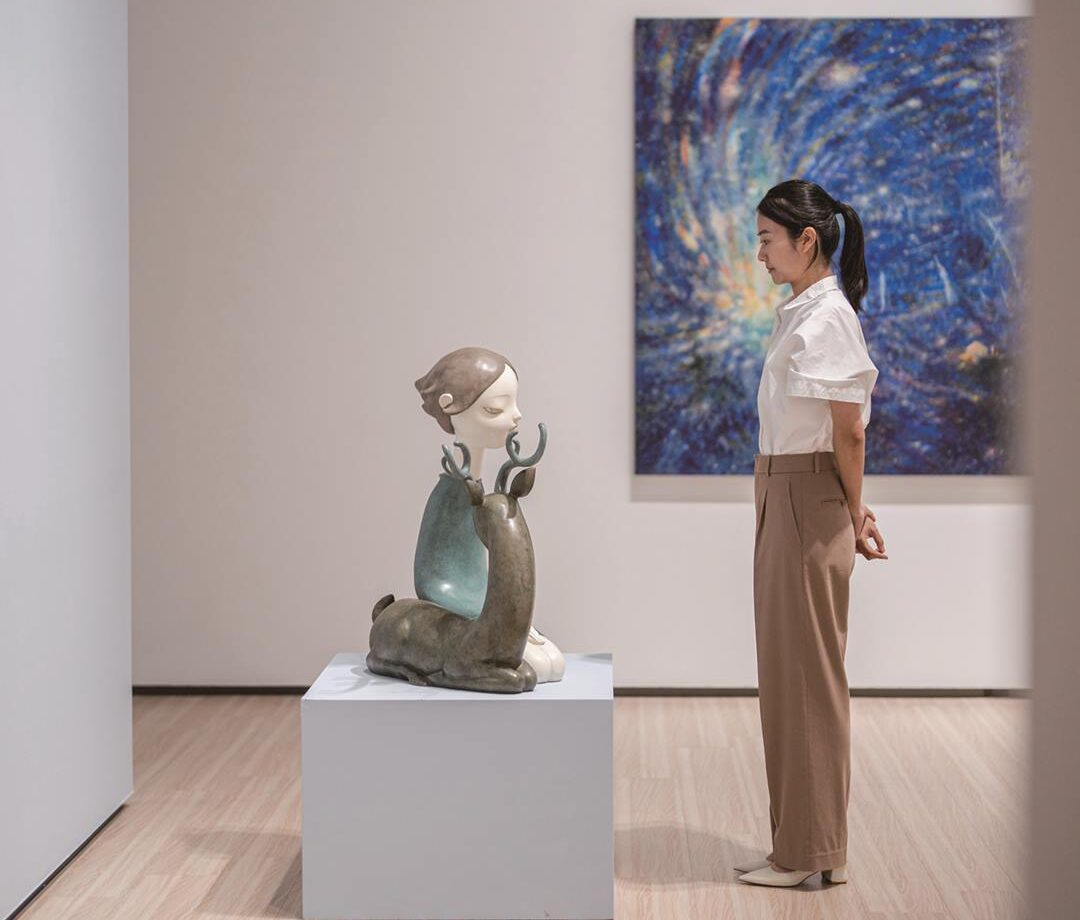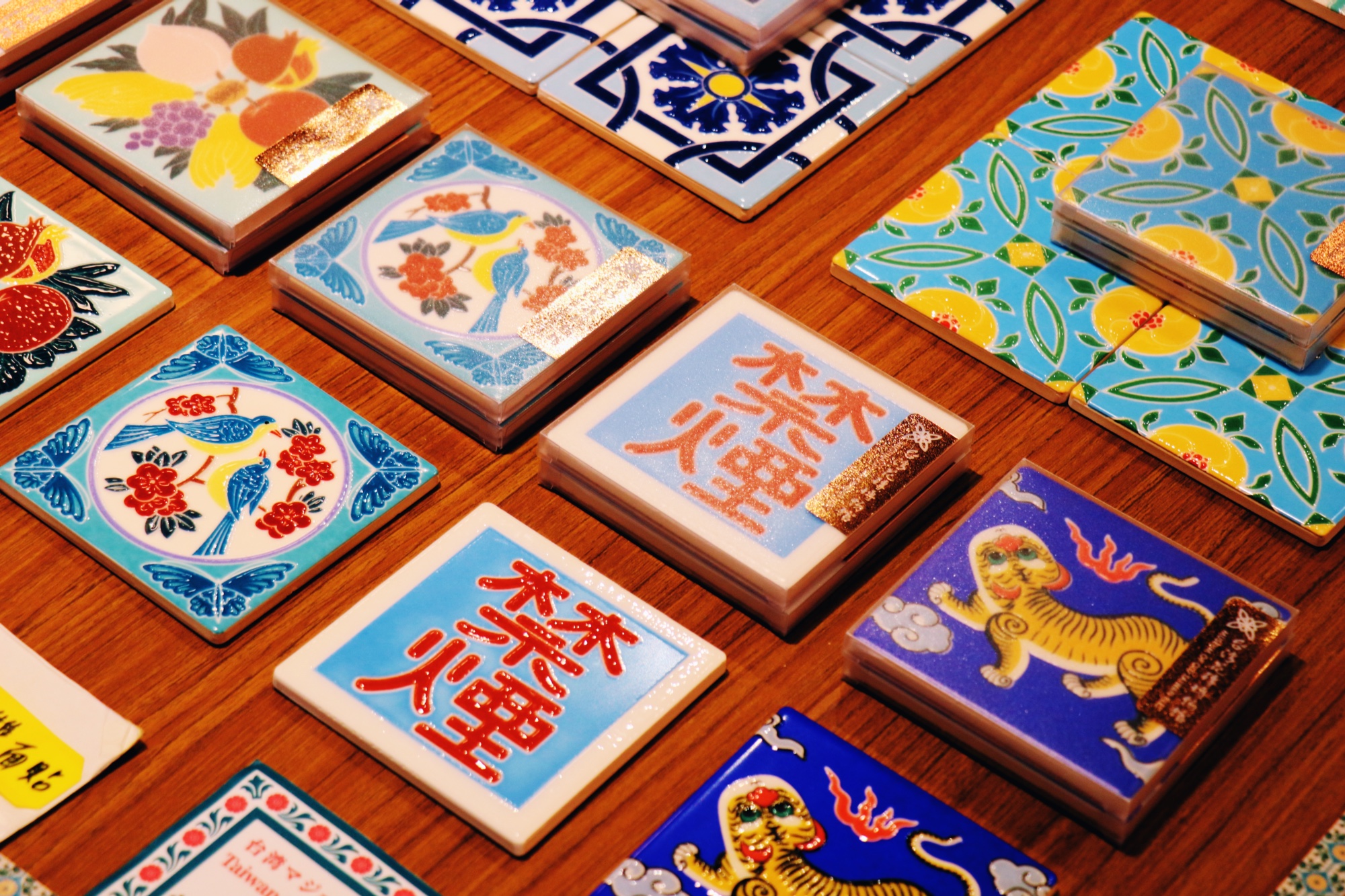Author: Levarcy Chen
Photo: Tween 灣島皇后, CUM-Create Ur Mmmagic, Julien Hunag
Editor: Julien Huang
The Illusion of “Finished”
In May 2019, Taiwan made history as the first country in Asia to legalize same-sex marriage. Rainbow flags flew, tears were shed, and the world celebrated Taiwan as a beacon of progress in a region still grappling with LGBTQ+ acceptance. The legislative battle was won. Equality achieved.
Five years later, when Nymphia Wind became the first Taiwanese contestant to win RuPaul’s Drag Race Season 16, the eruption of pride and visibility revealed an uncomfortable truth: legal rights and cultural celebration are not the same thing. Taiwan’s drag queens – artists who had been performing in nightclubs and underground venues for decades – suddenly found themselves thrust into mainstream consciousness. The answer to why this happened lies in understanding what came before – and what nearly disappeared.
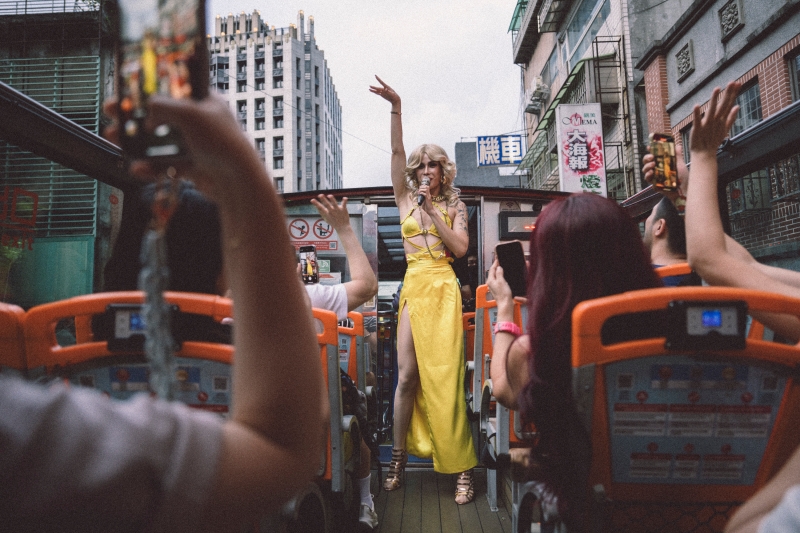
A Phoenix Rising: Taiwan’s Lost Golden Age
Toby Chen, co-founder of Tween (灣島皇后), is quick to clarify a crucial point: Taiwan’s drag culture isn’t new. What we’re witnessing isn’t birth – it’s resurrection. “This isn’t something that just grew recently,” he explains. “It’s more like a phoenix being reborn.”
Taiwan’s first drag queen event, Paradise Party, launched in 1995. Even as Taiwan’s social atmosphere gradually liberalized, these events remained trapped in a cycle: held underground, scrutinized harshly by society, ultimately shut down. But those early pioneers – the ones who dared to push boundaries – fed the generation that followed.
These performers came from everywhere: indigenous tribal communities, art school graduates, and self-taught artists. Their common thread was an undeniable love of performance. On stage, they were truly alive. Yet the immature market forced them to become everything at once: makeup artists, hairstylists, costume designers sewing their own elaborate outfits, music editors cutting their own tracks, DJs, choreographers, directors, and sometimes even emcees. They therefore possessed remarkable, multifaceted talent.
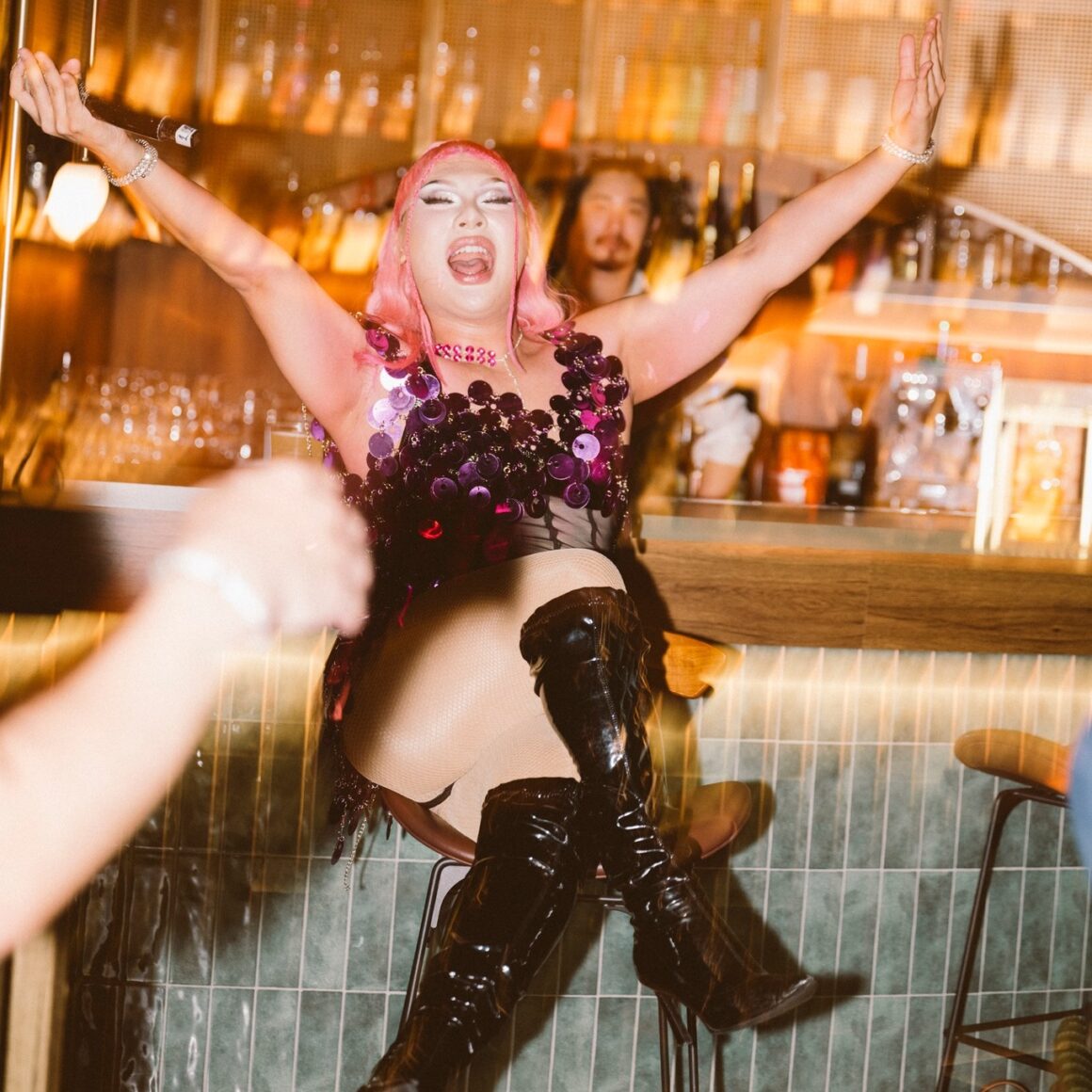
But the era wasn’t ready for them. Many couldn’t tell their families what they really did for work. Those who appeared on television often couldn’t return home, unable to face the “shame” their visibility would bring to their families. For decades, drag existed in this painful paradox – performers fully alive on stage, forced into shadows everywhere else.
The scene cycled through periods of emergence and suppression. As gay culture shifted toward celebrating hyper-masculinity and communities faced internal challenges, including substance abuse, drag’s flamboyant expression fell further out of favor. But it never disappeared entirely. These artists simply refused to stop performing, even without recognition, economic support, or family acceptance.
When Nymphia Wind’s generation emerged over the past decade, they inherited this legacy of resilience. They weren’t starting from scratch – they were rekindling a flame kept alive by performers who had sacrificed family relationships and social acceptance to keep drag breathing in Taiwan. But Nymphia’s RuPaul’s Drag Race victory changed something fundamental: the hiding could end for the queens.
Building Revolution: The Birth of Tween
Nymphia Wind’s victory also inspired Toby and his business partner Patty Yu, who had founded Taiwan’s first gender-friendly women’s travel agency (半伴旅遊), to initiate a far bigger idea- “The queens are more than entertainers, but creators and artists. Can we help Taiwan’s general public to understand drag culture from a bigger dimension?”
Together, they founded Tween to build what Taiwan’s drag scene had never had: comprehensive infrastructure. Operating across talent management, agency services, branded performance creation, digital content development, and rainbow tourism initiatives. The mission of Tween, in fact, is far beyond talent management. It is about fundamentally transforming how Taiwan perceives its drag performers – from comedic acts and nightclub dancers to legitimate artists deserving of respect, economic stability, and cultural platforms…queens are the infrastructure of cultural revolution.
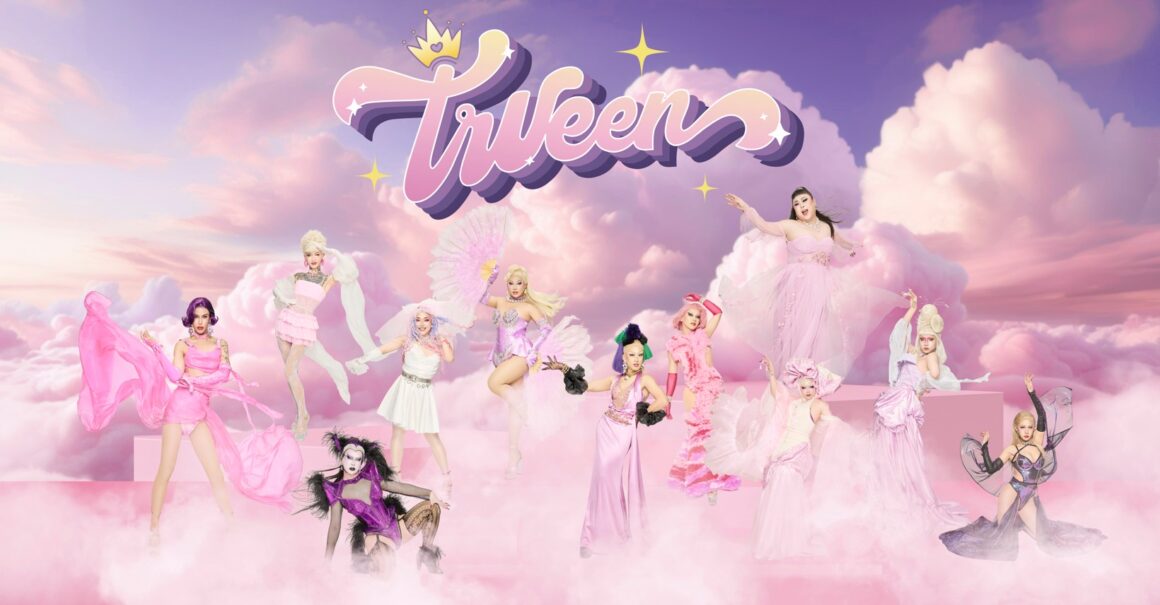
“I want to create a complete industry chain,” Toby explains, “an ecosystem where everyone can thrive together.” Drawing from international models, this means connecting makeup artists, wig makers, costume designers, venues, and audiences into a self-sustaining economy. It means creating original shows like “Island Night” that move drag from nightclubs to legitimate theaters. It means YouTube content that educates curious audiences. It means partnerships with city governments to position drag as an economic asset, not a fringe subculture.
The shift from “solo battles” to “team strategy” represents more than business efficiency. It’s a philosophical stance: the community grows together or not at all.
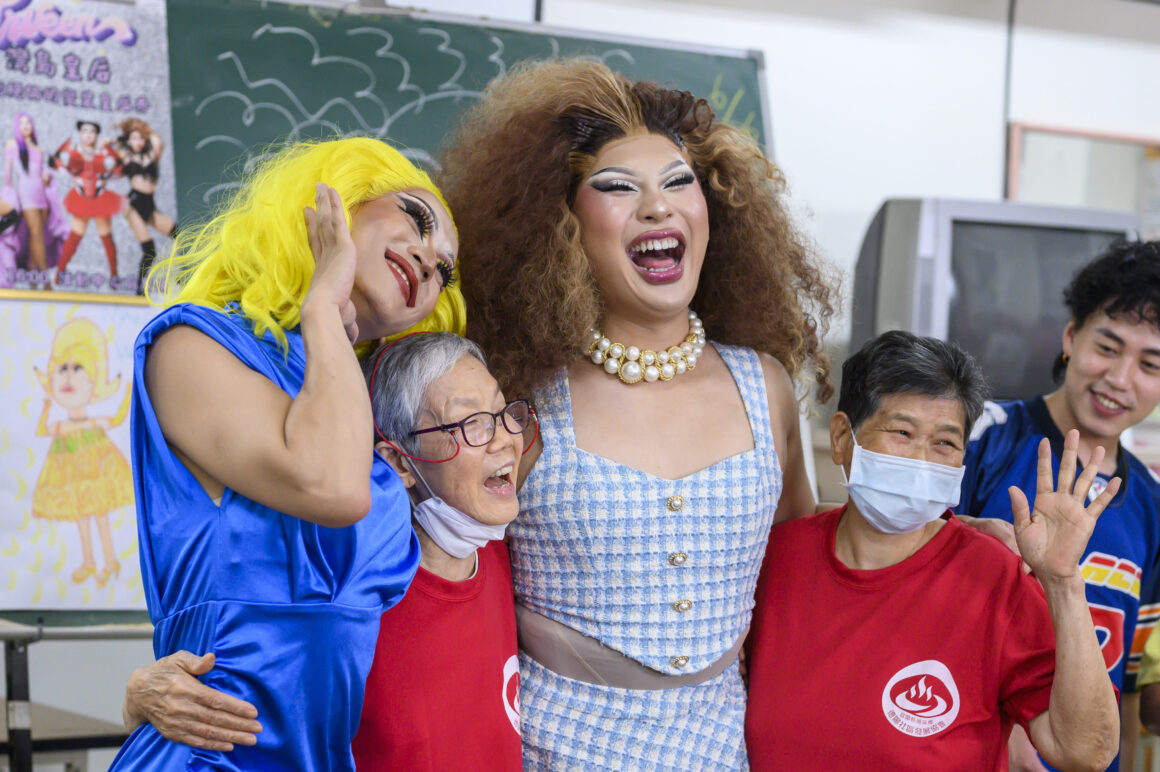
What Taiwan’s Drag Offers the World
While drag scenes globally often lean heavily on Western cultural references – American pop music, English language performances, Western fashion aesthetics – Taiwan’s queens have carved out something distinctly different. They perform in Mandarin and Taiwanese. They sample from local cultural touchstones. They draw from diverse artistic backgrounds spanning dance, theater, and digital content creation, resulting in performances with exceptional range and depth.
But what truly distinguishes Taiwan’s drag scene is its storytelling. These aren’t just performances – their profound personal narratives that transcend entertainment to become genuine artistic expression. At Tween’s “Island Night” showcase, audiences witnessed this depth firsthand. Yolanda recreated intimate moments with his mother, inviting her on stage to select songs from a coin-operated karaoke machine – the same way she used to enjoy herself in those cherished private moments. The performance wasn’t just honoring his mother; it was preserving her joy, her humanity, her specific way of being alive. Marian carried her deceased mother’s photograph on stage, delivering a message across the boundary of death: “You made it. I made it.” Other queens tackle environmental destruction, war, body image anxiety, and social inequality with equal artistic seriousness.
“For me, being a Queen is just a tool,” Toby reflects. “It’s like painting or sculpture.” Each performer develops completely different forms of expression through this medium – impressionist, abstract, hyperrealist – using different materials and methods to create art that reflects their unique vision.
This depth exists because of Taiwan’s foundation. “It’s because of this free and democratic growing environment that we can nurture such diverse and profound drag queen personas,” Toby observes. While many countries position drag primarily as entertainment for tourism, Taiwan’s democratic values and creative freedom enable queens to explore complex themes without restriction. They can honor dead mothers and critique government policy in the same performance. They can be vulnerable and political simultaneously.
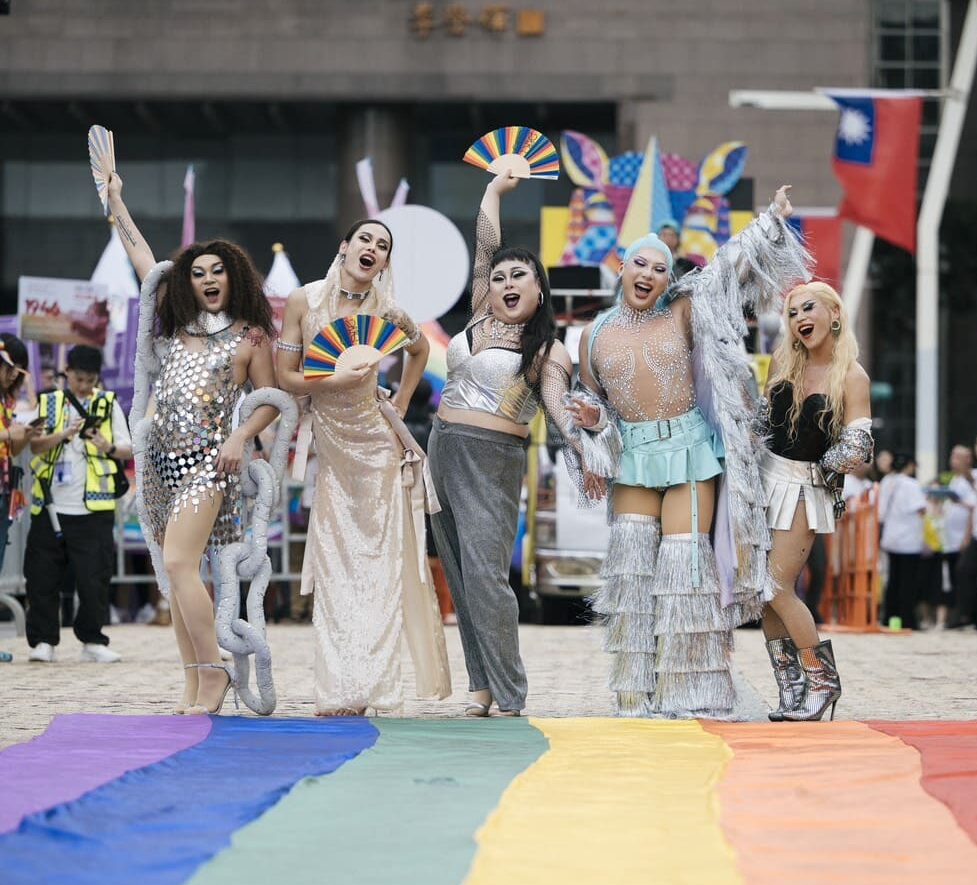
This is what Taiwan offers the global drag community: a model where Eastern cultural authenticity meets artistic depth, where personal narrative isn’t sacrificed for accessibility, where the art form evolves beyond its Western origins into something that speaks to local truths.
The Unfinished Revolution
The vision of Tween is positioning Taiwan as Northeast Asia’s drag capital, showcasing not just glamorous makeup and sharp wit, but the unique life stories and cultural depth of Taiwan’s performers to international audiences. Collaborations with international partners are already in development.
Such as the biggest music festival in south Taiwan, “Megaport Festival (大港開唱)“, where tens of thousands of people join every year, while drag queens on mainstream stages in broad daylight is becoming normal. The five-star hotel Courtyard by Marriott Taipei Downtown invited Tween to perform in the grand ballroom as “Queen’s Banquet Show” — a festive dining experience inspired by Taiwan’s traditional banquet-on-the-street gatherings. Guests can savor classic Taiwanese dishes while enjoying lively nakasi music (a traditional popular music form in old-time Japan and Taiwan) and the dazzling performances of queens that bring the celebration to life.
There are certainly voices against LGBTQ+ ( the voice has been there for more than centuries), but Tween’s strategy acknowledges this reality: introduce drag as performance art first, let people fall in love with the artistry, then gradually reveal the deeper values of self-expression, freedom, and radical acceptance that the art form embodies.
October 2025: Where to Experience Taiwan’s Drag Revolution
Tween has transformed October into a month-long celebration that invites everyone to participate in Taiwan’s drag renaissance. Here’s how to be part of the movement:
Rainbow Tour Bus: October 3rd-26th Every Thursday through Sunday, hop aboard the “2025 Color Taipei” Rainbow Tour Bus for a journey through Taipei’s LGBTQ+ history. Led by drag queens like RICO, Malisa, and Draggy Booboo, these tours visit landmark sites including the Red House, 228 Peace Memorial Park, and National Taiwan University, culminating in live drag performances at gender-friendly venues. The “Party Tour” variant delivers passengers directly to major pride events. This governmental collaboration proves drag culture has moved from underground to official cultural heritage.
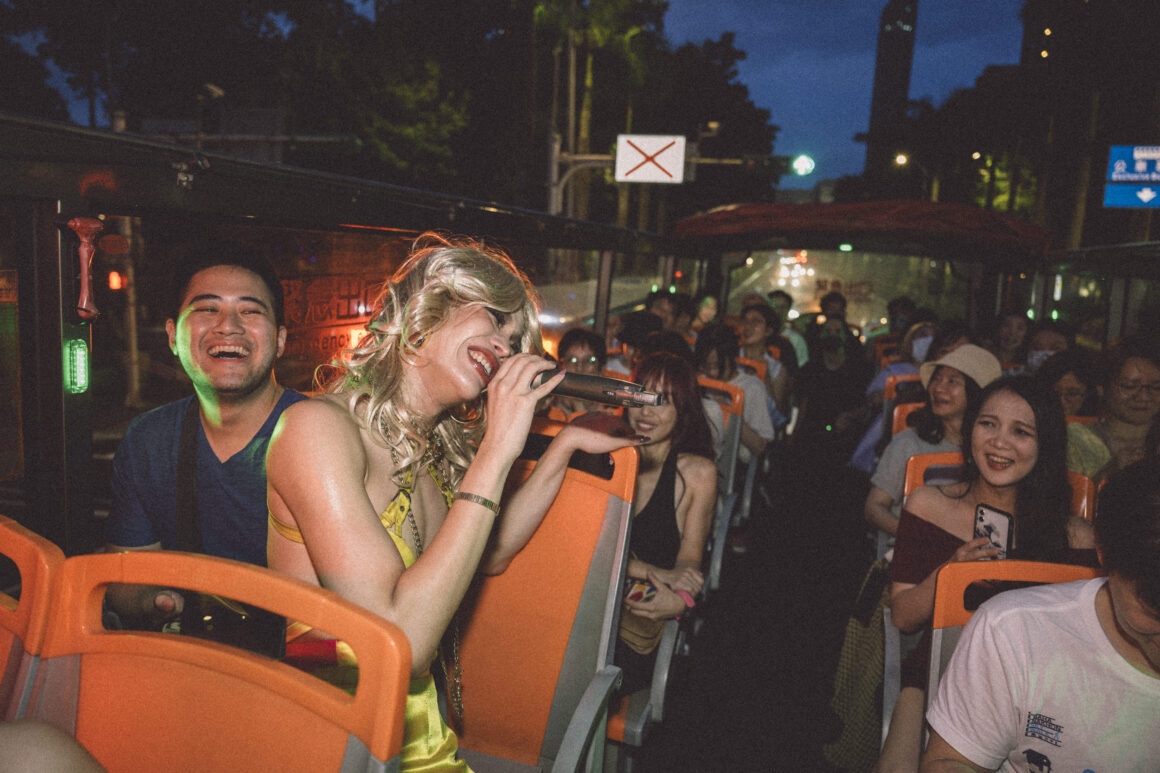
October 11: The Birth of Drama Two sessions, two moods. The afternoon “Birth of Queens” session features Diva Pop music and origin stories – accessible and joyful for newcomers. The evening session showcases the Medusa family’s dance prowess in a dramatic performance that incorporates Taiwan’s soap opera aesthetics, exploring community dynamics while celebrating love amidst competition.
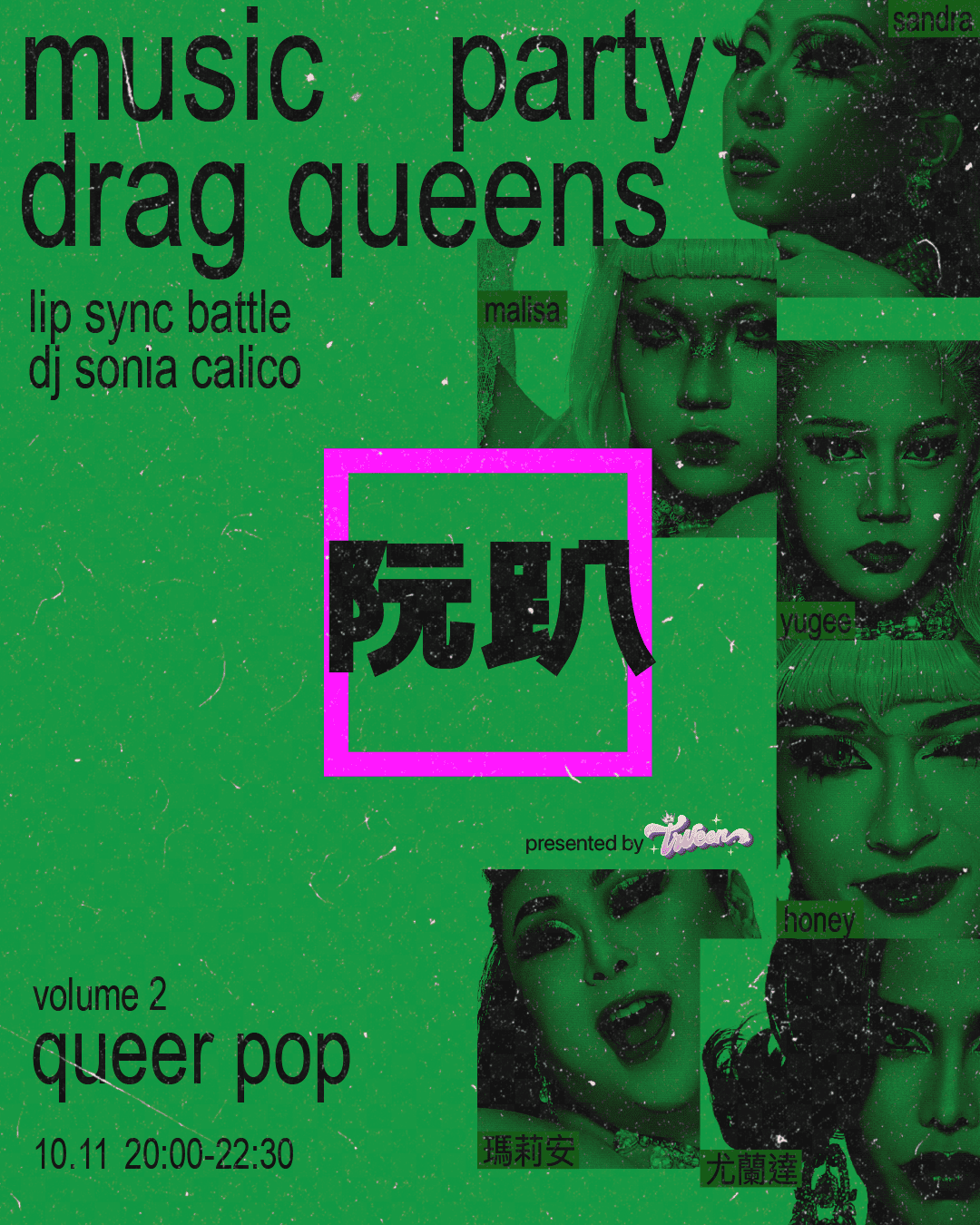
October 25: ‘You Better Werq!’ at Ximen Riverside Live house Taiwan’s drag elite (Yolanda, Marian, Beaux Batea, Feilibing) share the stage with international powerhouses from Thailand and the Philippines (Pangina Heals, Minty Fresh, Eva Le Queen) during pride weekend’s climax. This showcase positions Taiwan as Northeast Asia’s emerging drag capital – proof that local talent can hold its own on the international stage.
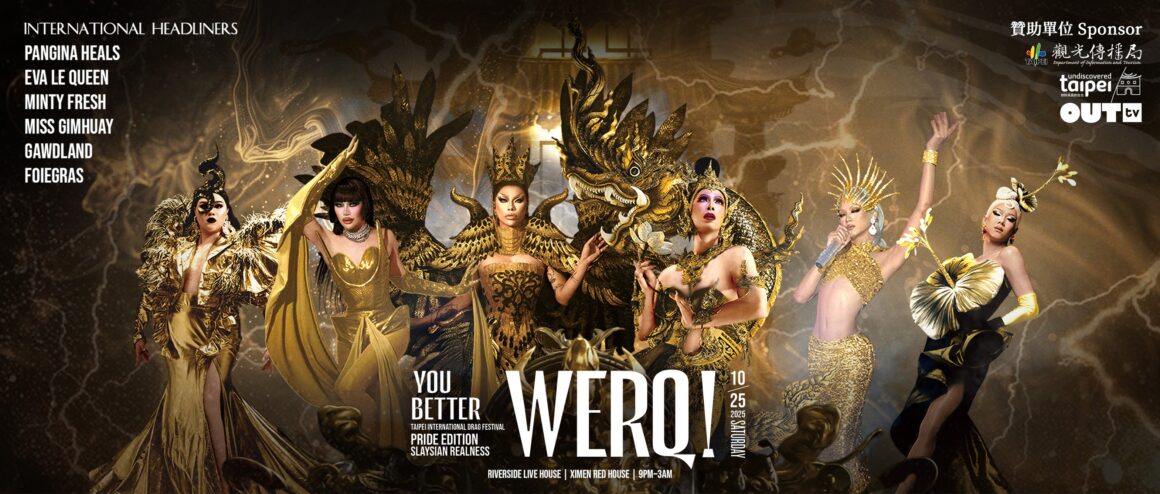
The Work Continues
The question facing Taiwan today isn’t whether LGBTQ+ people have rights — it’s whether Taiwanese society wants to embrace the freedom to build a community grounded in love and diversity. It’s about whether a nation that leads Asia in legal equality will also lead in cultural innovation.
We are fortunate to witness a society in transformation: when legal equality creates real economic opportunities, underground performers can turn their art into sustainable careers. Cultural change emerges from this process — not merely through acceptance, but through recognition as a vital part of the creative economy.
The revolution continues. And in this October, you’re invited to be part of it.

